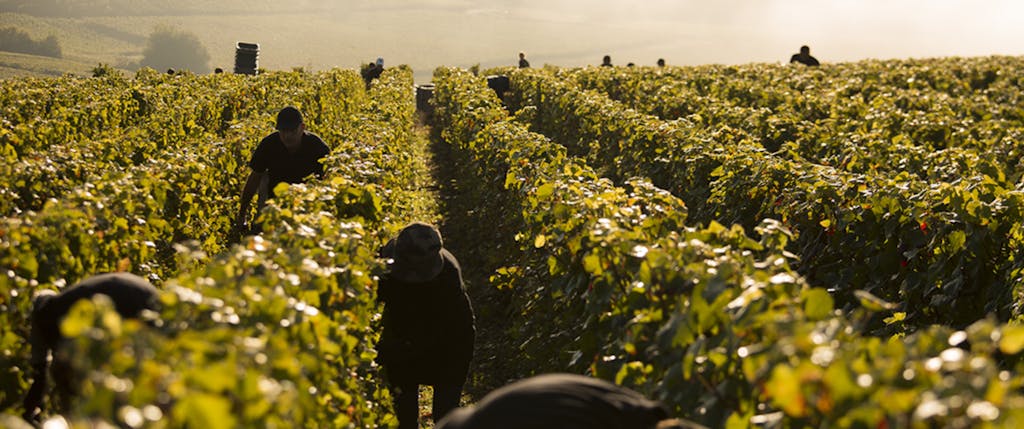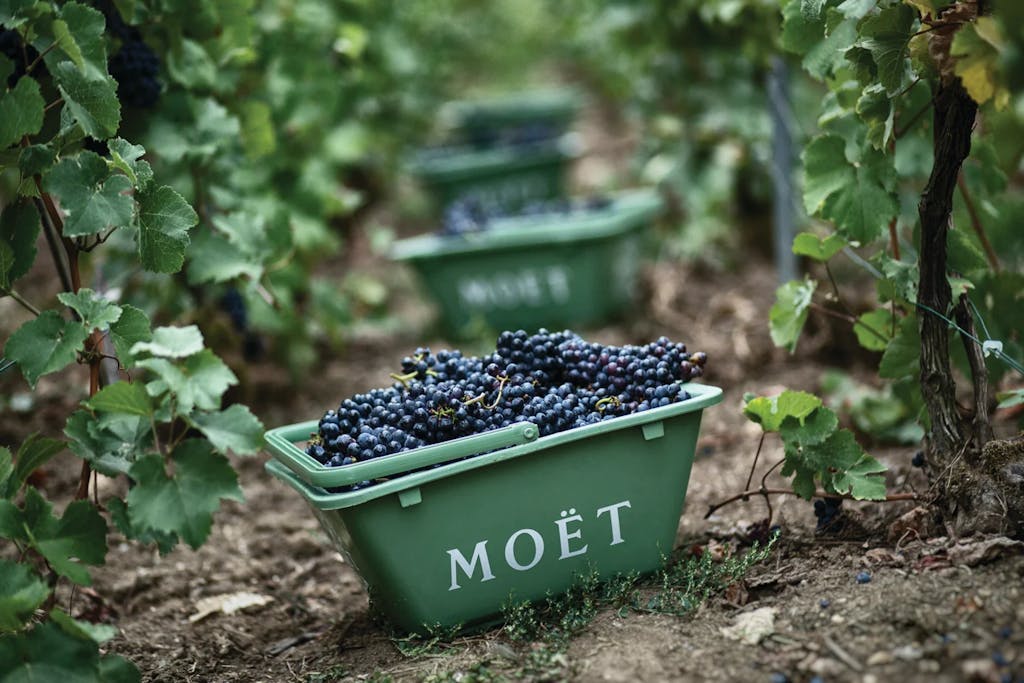Sustainable wine production at Moët Hennessy
, duration 3 min, , 1599
Manuel Reman, President of Krug, tells us about the Wines & Spirits sector’s commitment to nature
For Manual Reman, who was previously General Manager of MHCS (Moët Hennessy Champagne Services) and now newly appointed President of Krug, implementing sustainability measures isn’t a choice, it’s a necessity. We spend a moment with him to learn about the company’s environmental commitments, from cultivation methods to production and sales.
First off, wich champagne houses do you cover?
We have the largest vineyards in the area, covering the Group’s six Champagne brands: Dom Pérignon, Krug, Mercier, Moët & Chandon, Ruinart and Veuve Clicquot.
What’s your stance on herbicide?
We were one of the first to adapt our methods to avoid using herbicide in our vineyard. We are planting crops in the inter-row soil between the vines to improve soil quality, increase biodiversity, improve the soil’s water-holding capacity and help regulate vine capacity, among other things. Then, we will manage the seeds using alternative options such as electrical straddle tractors.
Are you setting an example for other winegrowers?
Yes. It’s an exciting challenge. We are the first ones to do it on such a large scale. It’s up to our winegrowers and oenologists to adapt to what nature throws at us while ensuring our products are (to quote Madame Cliquot) “one quality, the finest!”. Our vineyards were certified as sustainable in 2014 and we encourage our partners to do the same through things like certification bonuses, administrative assistance and technical advice.
What about operations, do you have sustainable development initiatives?
We’ve reduced our water consumption by a third since 2015, and we ship our bottles by river or by LNG truck. Most of our CO2 emissions come from manufacturing glass bottles, so we’ve tried to off-set this with eco-packaging.
Can you give us an example?
Yes. The best one would be the 100% recycled and recyclable Ruinart Blanc de Blancs Seconde Peau (Second Skin) cellulose fibre case. We haven’t patented the design so that our competitors can access the technology. If we’re going to support the environment, we must do it together.


Is sustainability just about the environment?
The answer is clearly no. CSR is a state of mind within LVMH. We are also working on human aspects such as transmitting know-how. We have a responsibility to perpetuate that savoir-faire. As the leader of Champagne, we hugely invest locally: we are the Region’s biggest employer with 2,000 employees and we inject around 800 million euros into the local economy. We must be an active leader in Champagne.
How do you do that?
Through our networks with technical schools, universities and business schools, and through various school-level inclusion programs. In 2015, LVMH created the IME (Institut des Metiers d’Excellence) to offer vocational training to youngsters interested in the craft industries. We’ve also created a company that helps people with physical disabilities to find jobs within our Maisons. Over 100 people have already benefited from this support.


What's the next step?
Mid-2021 will see the arrival of a new 20-million-euro centre for sustainability-themed research and development for all Moët Hennessy Maisons.
What will it do specifically for Wines and Spirits?
It will help us answer questions like: What cultivation methods or grape varieties are best suited to global warming? Can increased biodiversity completely eliminate the need for treatments? How can we reduce our carbon footprint by capturing the C02 from alcohol fermentation?
What message do you have for younger people interested in sustainability?
That LVMH is a company fully devoted to the cause. We have always been concerned by sustainable development, working towards a cleaner, fairer and more united society, and it still animates us today.
What skills do you look for in new recruits?
Our companies are brimming with talent, but not just business talent. We look for people with soft skills like empathy, creativity and integrity, and people who can listen, propose solutions and have the confidence to think out of the box. They’re valuable skills in any sector, but especially when you’re dealing with sustainability.
Moët Hennessy is fully aware that its first societal responsibility is to prevent risks associated with harmful alcohol consumption. Discover the elearning and get certified.